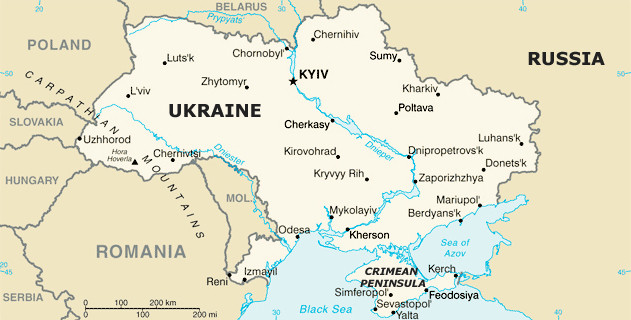JRL NEWSWATCH: “Entrepreneurs of political violence: the varied interests and strategies of the far-right in Ukraine; For Ukraine’s far right, violence has become a source of influence and power [Excerpt]” – OpenDemocracy/ Denys Gorach

(opendemocracy.net – Denys Gorach – October 16, 2018)
Denys Gorbach is a leftist activist and researcher working on the Ukrainian labour movement.
[Full text: opendemocracy.net/od-russia/denys-gorbach/entrepreneurs-of-political-violence-ukraine-far-right]
“The recent wave of anti-Roma pogroms in Ukraine has spawned a new series of texts on right-wing violence. However, a significant part of this literature still mostly relies on discourse analysis, which cannot fully explain the actions of far right organisations on the ground. Analysing far-right movements’ programmes and ideological statements can be useful when combined with a closer look at the actual activities of the movements in question, the way they interact among themselves and the wider social and political context. But judging a group primarily by how it presents itself to the world is misleading.
The lack of primary sources from Ukraine’s far-right milieu, as well as the general scarcity of research on non-EU (and non-Russian) eastern Europe, has led to an exoticised perception of central and eastern Europe as whole – and one that is open to politicisation by both liberals and leftists. Public discussion thus tends to degenerate into either liberal denial of the very existence of the far-right problem in Ukraine or sensationalist and exaggerated “anti-imperialist” accounts of the “fascist junta” ruling the country.
To avoid oversimplification, I focus on the grounded context rather than ideologies and programmes of far-right groups. Here, I will try to contribute to a better understanding of the far right in Ukraine by conceptualising them as “entrepreneurs of political violence” – a portmanteau of two established terms from different fields. A “political entrepreneur” is a political actor who pursues opportunistic strategies aimed at gaining popularity and influence, rather than following a specific ideological agenda. Likewise, “Violent entrepreneurs” is the title of an influential study of Russian organised crime by sociologist Vadim Volkov, who analysed post-Soviet mafia as a particular kind of entrepreneurship where violence resources become a crucially important capital asset.
By taking a similarly pragmatic look at the activities of Ukrainian far right, I claim that they should be viewed as political entrepreneurs who are trying to capitalise on their expertise in violence. This can be a more productive lens than engaged approaches which “take a stance” on the far right – approaches that simply acknowledge the gravity of the situation or belittle it. These tend to be accompanied by wider political conclusions, and do not seek to understand the issue at hand ….
As I have argued above, Ukraine’s far right are taking the logic of “violent entrepreneurship” outside the purely commercial and apolitical realm – and employing it in the domain of political contestation, where illicit violence is a precious resource that can be bought and rented. Ukrainian Nazi movements thus exist on the intersection of several worlds (criminal, commercial, military, marginal-political, mainstream political) and are prepared to mobilise their violent resources for advancement of their own positions, up to and including displacing former patrons and stepping into their shoes. The skillful and measured management and use of these violent resources is the key to success in this strategy.”
Click here for: “Entrepreneurs of political violence: the varied interests and strategies of the far-right in Ukraine; For Ukraine’s far right, violence has become a source of influence and power [Excerpt]” – OpenDemocracy/ Denys Gorach
Article also appeared at opendemocracy.net/od-russia/denys-gorbach/entrepreneurs-of-political-violence-ukraine-far-right bearing the following notice:
 This article is published under a Creative Commons Attribution-NonCommercial 4.0 licence. If you have any queries about republishing please contact us. Please check individual images for licensing details.
This article is published under a Creative Commons Attribution-NonCommercial 4.0 licence. If you have any queries about republishing please contact us. Please check individual images for licensing details.
